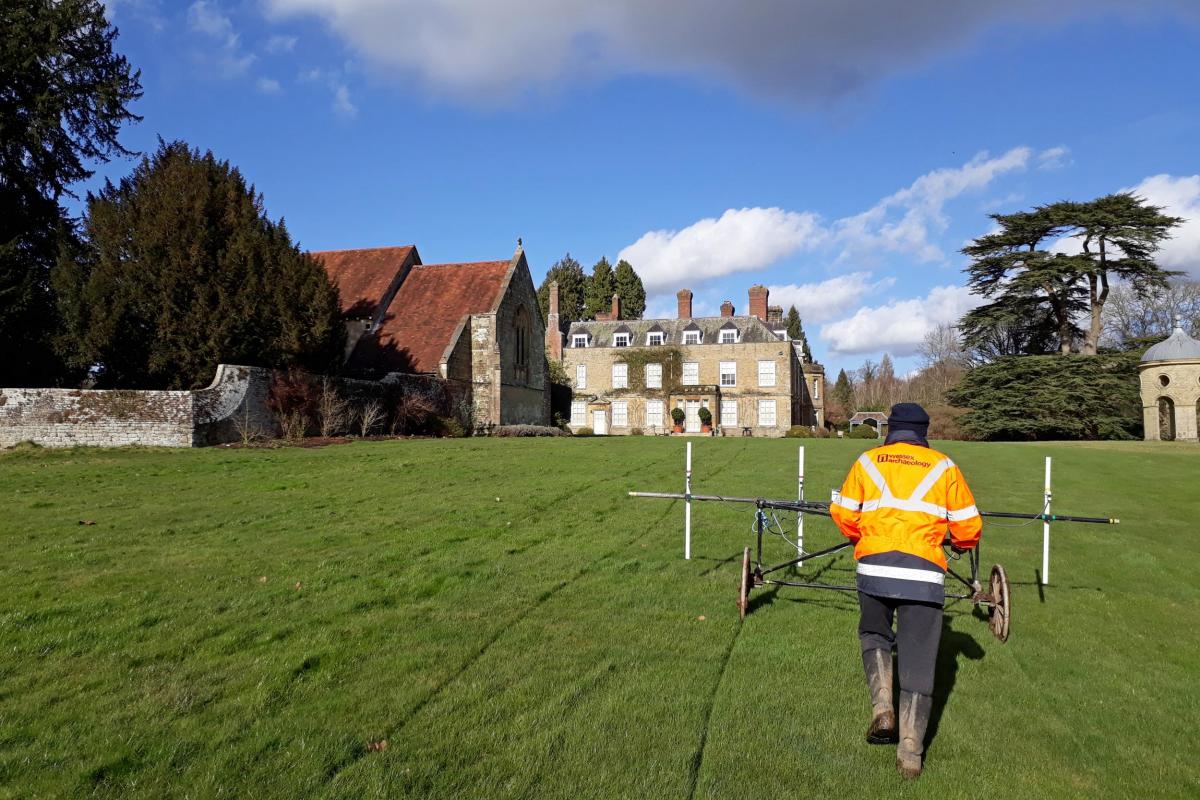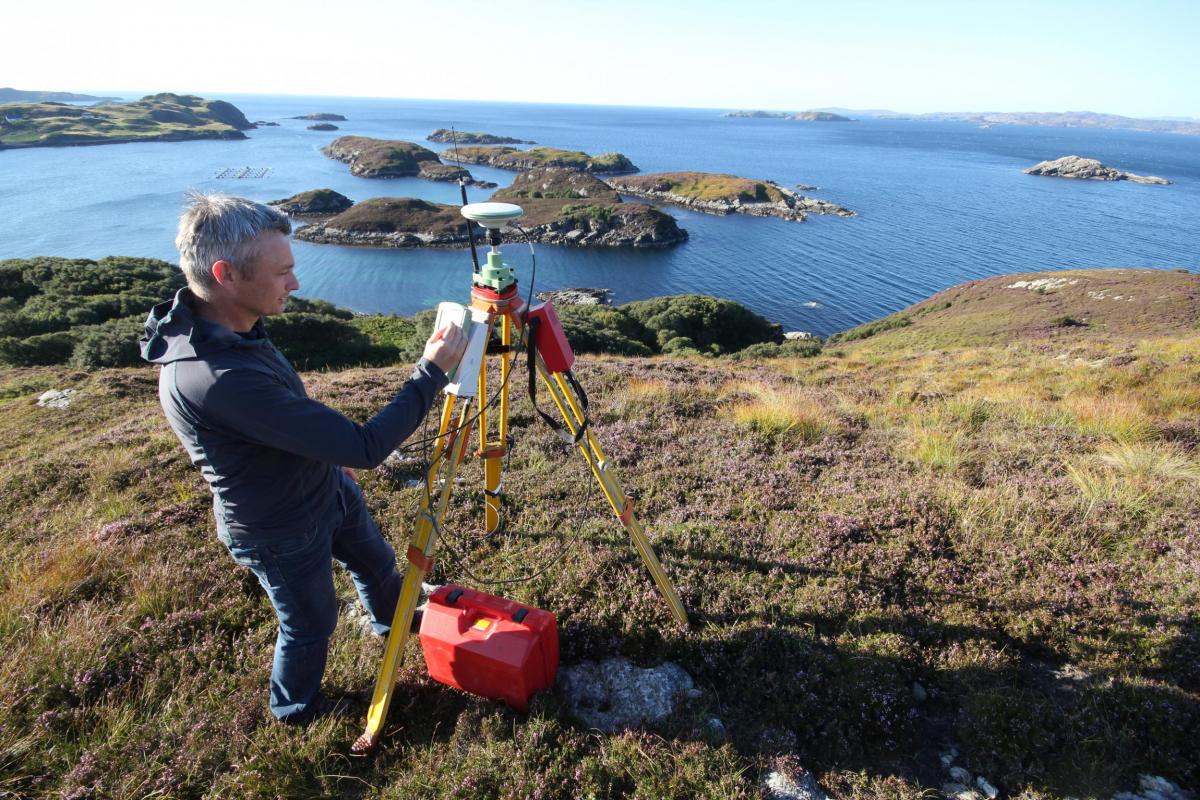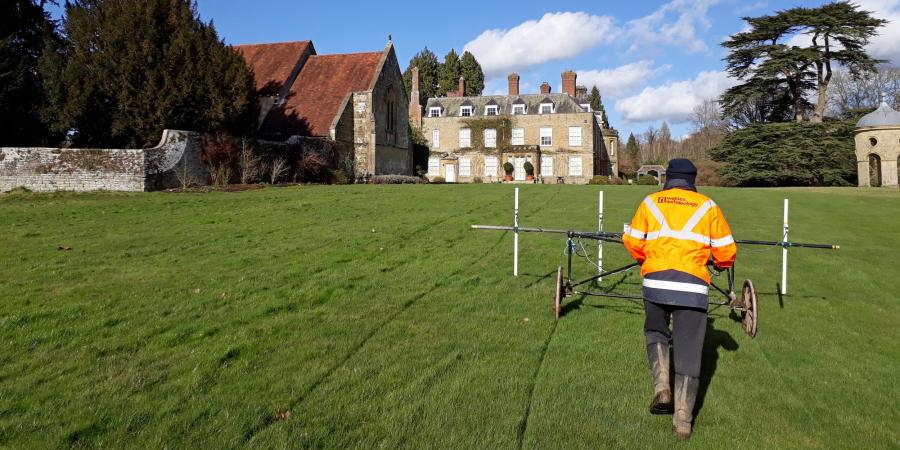Dave Norcott and Mark Williams from our Sustainability Working Group caught up to discuss the importance of sustainable development in the Historic Environment sector.
Why is sustainable development important to Wessex Archaeology?
Sustainable development is important for us all – it is the way we organise current processes to influence the future.
Climate change is the biggest challenge facing the planet right now, but sustainability isn't only about climate change. Governments, international agencies and developers alike are using the frameworks of sustainability - in particular the Sustainable Development Goals and their targets - to express their values and how they intend to interact with the world, both in minimising negative impact, but also in terms of the positive contributions they wish to make to society, economies and the environment.
How is Wessex Archaeology approaching sustainability and what have you been working on lately?
We have created a working group of people from across our business whose experience and passion lies in various different aspects of sustainable development. This group is responsible for creating and delivering a set of objectives for the company around sustainability, and for ensuring that we are offering effective, high-quality services that help clients achieve their sustainability targets.
Over the last couple of years, we’ve been linking up to share ideas with key people from organisations in the UK and internationally, including Historic England, the Environment Agency and Historic Environment Scotland, and we are also founder members of the Climate Heritage Network with whom we recently joined forces to host a Climate Takeover Day at the CBA’s Festival of Archaeology.
This summer we hosted a thought leadership session at the EA’s Flood and Coast 2021 conference on Sustainability for Specialist Subcontractors, which brought together colleagues from a range of organisations to explore how we can work together most effectively to add sustainability value as part of a supply chain. This will be followed up with a white paper shortly.




What challenges are there around implementing sustainable development activities? How do you overcome these challenges?
Although it has been talked about for years, the practical and measurable application of sustainability outside of lowering carbon footprints is relatively new for the development supply chain as a whole – and perhaps more so for the Historic Environment sector. We’ve been working hard figuring out how we can best apply, manage and measure the value of what we do in terms of sustainability – and ideally in a way that a wide range of service providers can all operate under. This is an exercise littered with challenges, yet it remains an exciting and unprecedented opportunity to collaborate with colleagues and clients across the broad range of sectors that contribute to development, to ensure that we are putting the right building blocks in place for the future.
It often feels like the Historic Environment sector have a great understanding of the value of our work, but aren’t always brilliant at communicating why and how it should matter to other stakeholders. Sustainable development - and the SDGs in particular - provides a framework and common language to do just that.

How can archaeology and heritage help clients to achieve their sustainability targets?
When we first started looking into the UN’s Sustainable Development Goals in detail, we were quite surprised to see how well our work can contribute to a really broad range of social, environmental and economic targets.
As archaeologists, what we are essentially doing is studying the interplay of past social, economic and environmental systems over time, with a particular focus on human material culture. When viewed like this it should come as no surprise to us that the stories we can tell are relevant for helping people understand the interaction between these systems, and help contribute to a more sustainable future.
Social value is one area in which archaeology is more widely understood to provide valuable contribution, but even here is generally underestimated and underexpolited. With proper planning and execution our work can contribute to a wide range of social value aspirations including community cohesion, sense of place, wellbeing and appreciation of landscape; less well known however are the contributions our work can bring to harder reach goals, such as understanding the response of natural systems to changing climate stimuli and sea-levels, for example.
Wessex Archaeology has a long tradition of award-winning community engagement, and we help communities, clients and stakeholders realise the benefits that heritage can deliver in terms of wellbeing, inclusion, social cohesion and sense of place.


How can developers work with their archaeology contractors to lower the carbon footprint of their supply chain?
Developers are under a lot of pressure to evidence the sustainability of their supply chains, especially when it comes to carbon footprints.
One of the best ways to reduce our footprint is to ensure that our excavations are carefully targeted, and where possible are integrated into other works. We achieve this for our clients by providing expert advice at an early stage, combined with the intelligent application of technology (non- or minimally-intrusive methods such as geophysics, UAV survey and geoarchaeological deposit modelling). As part of an integrated delivery team, we also collaborate effectively with other suppliers to reduce duplication of effort and share data.
An excellent example of greatly reducing environmental impact by incorporating investigations into existing planned works is our recent work with AECOM on the Lower Thames Crossing scheme. By being integrated into the delivery team at the delivery stage, we were able to embed specialist archaeological surveys into the Ground Investigation programme right from the start - this effectively removed the need for a whole phase of purposive archaeological survey, dramatically reducing overall ecological impact, carbon footprint, landowner disturbance and cost. Crucially, is also provided extremely valuable data to client and stakeholders at a much earlier stage than would usually be possible, enabling any further archaeological responses to be much better targeted. Better outcomes for all, with lower impact and at lower cost.


What are Wessex Archaeology’s long-term sustainability aims?
Our agenda is pretty ambitious! We want to lead our profession forward on this, and drive the widespread use of Sustainable Development language and frameworks to articulate the wide range of social, environmental and economic benefits that the Historic Environment sector can bring.
Archaeology as a whole is facing some pretty challenging times right now, especially in Higher Education, and the opportunities presented by the sustainability revolution could not have come at a more crucial time for the sector. Ultimately, we intend to push the relevance of Historic Environment right up the agenda for Gov’t, developers and society alike, and contribute to the sustainability of our profession, as well as the heritage resource itself.


From an interview with David Norcott, Business Development Director and Mark Williams, Regional Manager London & South East.
